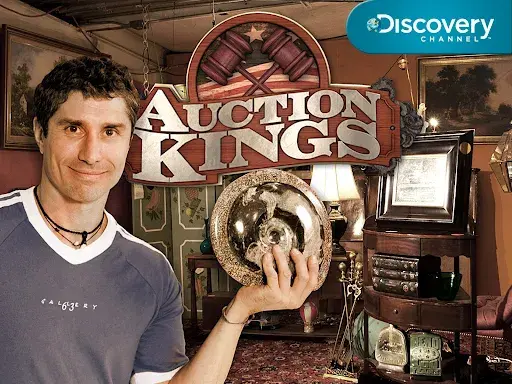Chinese Decorative Art on Offer From Akiba Antiques
Akiba Antiques has built a reputation for offering lots from across categories, periods, and continents. The auction house’s latest event, the East Coast Estate Finds sale, will have something for most collectors. Among the top lots are several Chinese decorative art pieces that shine a light on the country’s art history and folklore.
Learn more about these lots and their history before the bidding begins.

Chinese Panel Screens
Panel screens are one of the most well-known and universally adopted Chinese decorative art forms. Today, people generally use these screens for privacy or to display the artwork framed on them. However, the original use for these pieces in Han dynasty China was to block chilling winds. The Chinese word for panel screens, píng fēng, translates roughly to “wind screen.”
Coming to auction with Akiba Antiques are panel screens from the late 19th or early 20th century. That includes a five-panel wood screen (lot #112; estimate: USD 2,000 – $6,000). Carved into the panels is a scene of riders on horseback heading towards a central location. Mountains and trees tower over the men and their horses.
Bidders will find another screen from the same period with five panels decorated in jade (lot #113; estimate: $2,000 – $6,000). In all five panels, upper-class women interact, framed by tree branches and traditional architecture.

Egg Shell Decorations
Decorating egg shells is a folk art tradition that has inspired many Chinese decorative art pieces. The practice was most popular in “Wenzhou, Lucheng, Rui’an, Pingyang and Cangnan of Zhejiang province,” says China Daily. These eggs were used in many different ceremonies. For example, in the Bai community of Yunnan province, decorated goose eggs helped bless newly-constructed homes.
A 20th-century cloisonné egg inspired by this traditional art form is available from Akiba Antiques (lot #113A; estimate: $500 – $2,500). This three-foot-tall piece allows for more intricate decoration than an actual egg. Cranes and various other birds fly across a field of flowers. The occasional butterfly also manages to blend in with the flowers in full bloom.

Monkeys in Chinese Decorative Art
Bidders will notice several monkey-related pieces among the auction’s top lots. That includes a ceramic depiction of a monkey seated on a pomegranate (lot #318; estimate: $100 – $1,000). The animal wears traditional theatrical garb and makeup, including a rosy blush.
Monkeys play an important role in Chinese culture and folklore. The tales of Sun Wukong, better known as the Monkey King, are taught the world over in literature courses. Monkeys are seen as clever animals, and those born in the Year of the Monkey are supposed to have high intelligence.
A Chinese calligraphy brush with three wise monkeys is also available from Akiba Antiques (lot #301; estimate: $100 – $1,000). These creatures decorate the calligraphy brush’s handle. The brush’s tip is made of horsehair.

Known around the world by the phrase “see no evil, hear no evil, speak no evil,” the three wise monkeys date back to 17th-century Japan. However, the philosophy behind them goes back to Buddhist and Hindu teachings from centuries prior.
Akiba Antiques’ East Coast Estate Finds auction begins on May 27th, 2021 at 12:00 PM EDT. Register to bid and view each of the lots on LiveAuctioneers.
Want to learn more about Akiba Antiques? We recently spoke with the auction house’s co-owner, Alexander Anapolsky.









